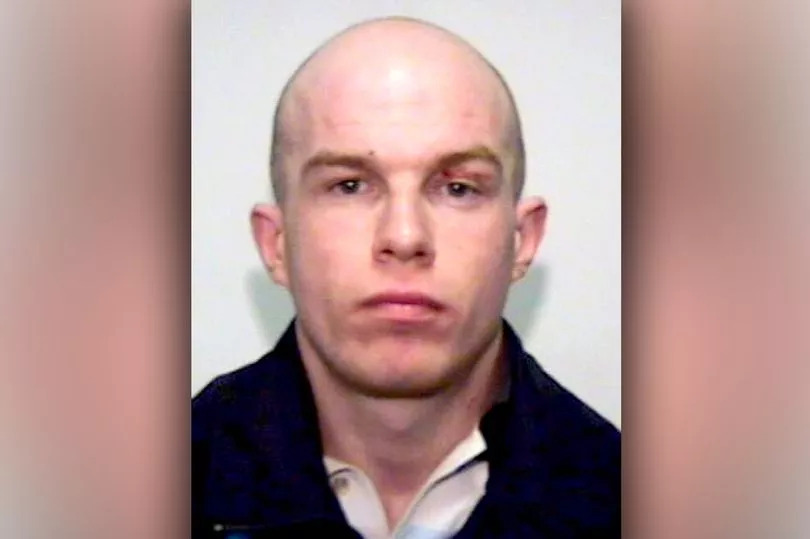
The family of prisoner who has spent 18 years behind bars – despite being told he could apply for release after three-and-a-half years – has pleaded for his release so he can see his elderly parents before they die.
Neil Hore, from Wigan, was 25 when he was among the first offenders to be handed an Imprisonment for Public Protect (IPP) sentence in 2006, for a 3am knife attack outside a nightclub. The judge who sent him down told him he would be could apply for parole after three-and-a-half years.
But 18 years later – now aged 43 – he remains behind bars after six successive Parole Board hearings decided he was too dangerous to be released. Despite a seventh Parole Board hearing last year recommending he should be sent to an open prison, today he still remains behind bars at HMP Lincoln, a category B jail.
READ MORE: Wayne stole a bike when he was 17 now he’s 34 and still in prison
He is among about a thousand IPP prisoners who have never been released. The sentence, which placed offenders on licence for life, was abolished 12 years ago on the back of a European Court ruling that they breached human rights – on the grounds that prisons had failed to provide inmates access to the rehabilitation courses required to demonstrate to the Parole Board that they were safe to be released.
But the abolition wasn’t retrospective, so today, even though more and more are being released, many IPP prisoners remain behind bars. Neil’s niece Laura Hunt, 37, is pleading for her uncle’s release so he can see his frail mother Jennifer, 77, and father Shaun, 78, before they die.
Laura said: “It’s a very cruel sentence. He was extremely vulnerable at the time. He’s not the man who went into prison. When I look at him, he’s just like an empty shell. I try to have a laugh with him, but that personality is gone. He says ‘I don’t know how much fight I’ve got left Laura’.
“He was a troubled kid. It wasn’t the best childhood. He was bullied. He was a loner. He did his own thing. I don’t recall any girlfriends. It’s been hard for him. He was nice as a kid. He liked football and he was always upbeat and he didn’t let the past damage him.
“He tried to forget about it. Now he’s a shadow of his former self. He wants to have his own family. He wants to see his mum and dad before they go. He’s never seen his great nieces or nephews.
“He’s missed a lot of milestones while he’s been inside. I know people have families older these days, but he’s missed the opportunity to have a family in the prime of his life. The prospect of him having his own family has been and gone.”
Laura described her uncle’s devastation when he learned reforms instigated earlier this month to cancel the lifetime licences of 1,800 prisoners on IPP sentences didn’t apply to him – only to offenders who were released from prison on licence at least five years ago who have not been sent back to jail within the last two years.
She added: “It was a kick in the teeth for him, but it was even worse for him. He’d got excited that he might be released. I’m glad for all those people who have been released but my uncle is still in prison.”
Then 25, Neil Hore and his brother were jailed for their part in what was described in court ‘frenzied and ruthless’ knife attack on a man outside Liquid nightclub in Wigan. Neil was ordered to serve a minimum of three-and-a-half years before he could apply for parole.
The Parole Board has confirmed the Parole Board decided it was unsafe to release Neil Hore in six successive hearings, but that in the seventh last year it recommended to the Secretary of State he be sent to an open prison. Despite that, he remains locked up at HMP Lincoln, a category B jail.
The latest available figures from the Ministry of Justice say there were still 1,095 IPP prisoners behind bars who have never been released. About two thirds have served ten years more than their ‘minimum tariff’. Another 1,599 IPP prisoners are behind bars after being recalled for alleged breaches of their licence.
A Parole Board spokesperson said: “The Parole Board’s role is to decide whether a prisoner’s continued detention remains necessary for the protection of the public. Whilst we will not hesitate to direct that prisoners should remain in prison if they continue to be a risk to the public; we have also welcomed the government’s reforms in the Victims and Prisoners Act 2024, where a two-phased approach will be used to deliver on these provisions.”
The spokesman pointed to the first phase which saw the licences of 1,742 IPP inmates cancelled from November 1 and another due in February when another trance of licences will be reviewed. The Parole Board has also set up a ‘taskforce’ to carry out the review.
The spokesman added: “The Parole Board recognises the frustration and loss of hope felt by IPP prisoners and their families and welcomes these changes. This will allow prisoners who have been properly punished and are no longer significant risk to the public to move on with their lives without the fear of recall.
“Licences will remain in place if the Parole Board judges that continued supervision remains necessary. Public protection is our number one priority.”
A Ministry of Justice spokesperson said: “It is right that IPP sentences were abolished and we recently ended the life-long licences that more than 1,700 ex-offenders were still subject to. Those still serving time in prison get the opportunity every two years to convince the Parole Board they are safe for release, which is an important safeguard for the public’s protection, and we are improving the rehabilitation and mental health support they get in prison to help them do this.”
EMEA Tribune is not involved in this news article, it is taken from our partners and or from the News Agencies. Copyright and Credit go to the News Agencies, email news@emeatribune.com Follow our WhatsApp verified Channel




